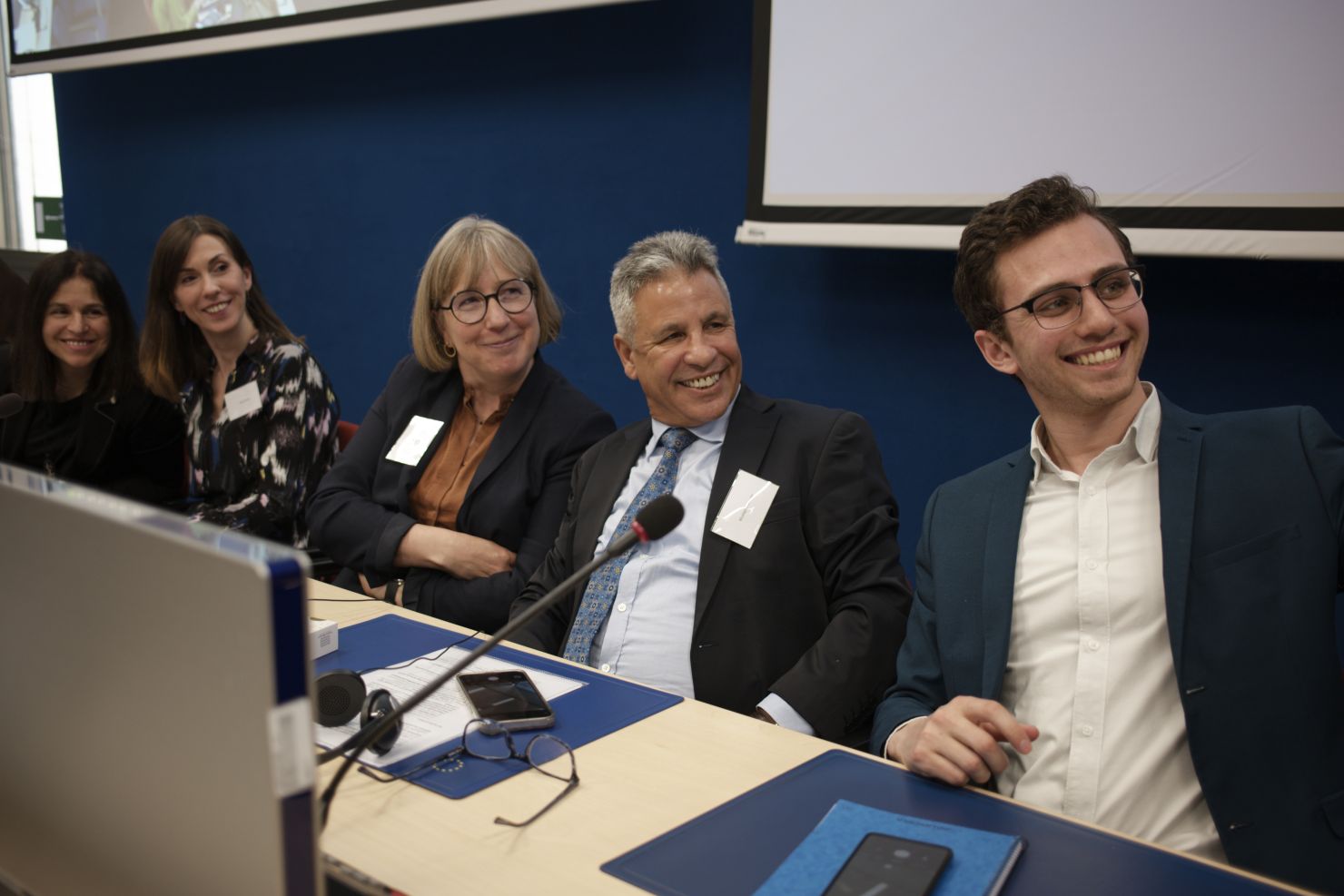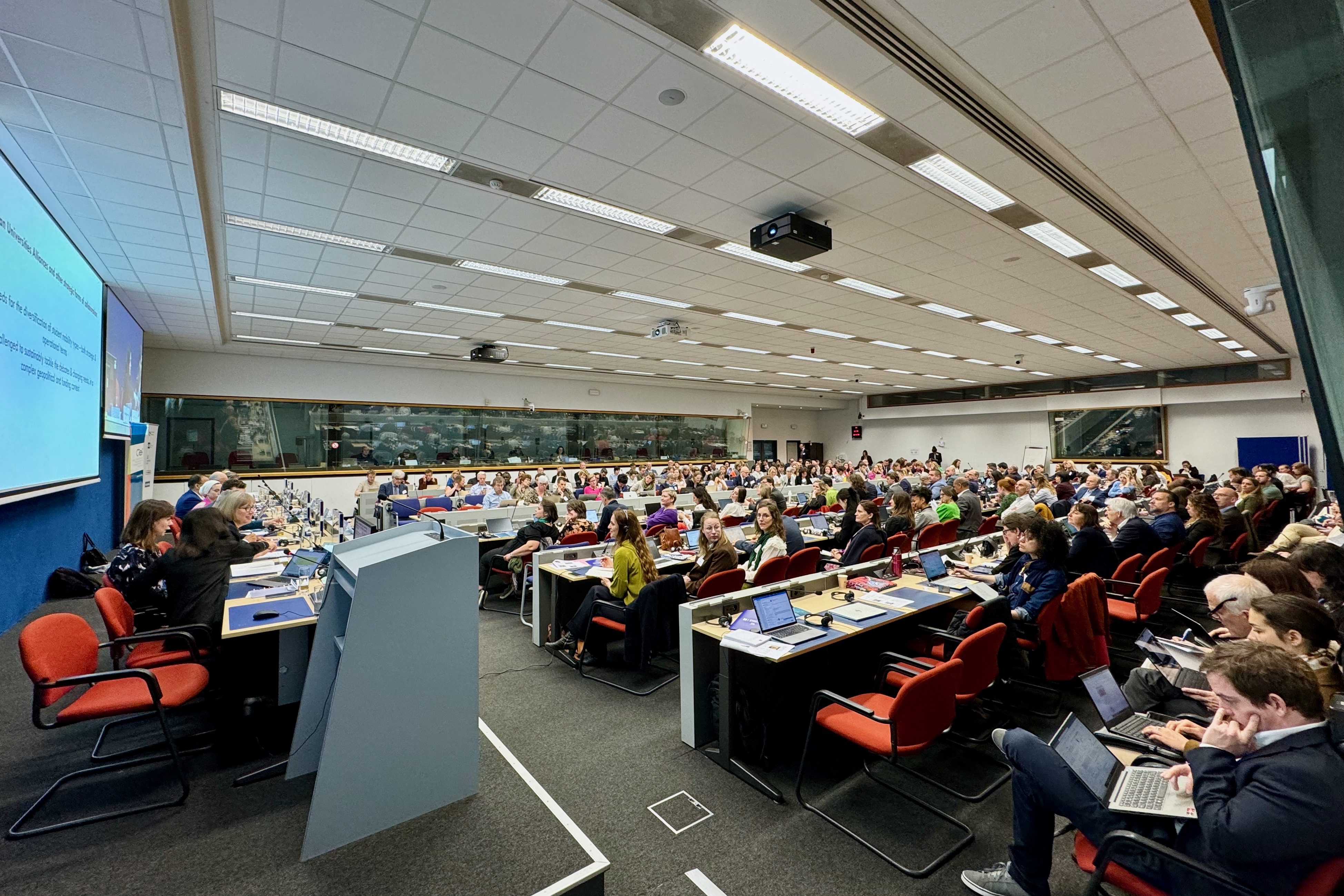
The panel took place within the conference European University Alliances: Drivers of Change and Innovation in Higher Education organised by VLIR and CRef in the context of the Belgian presidency of the European Council on April 30, 2024.
The conference was a rare opportunity to share views and experience among all 10 Belgian universities, all of which are members of a European university alliance. It was also a timely chance to express, collectively, policy recommendations aimed at the European authorities. Putting together this panel showed how two alliances (this time CIVIS and ENLIGHT) can efficiently collaborate to deliver a thought-provoking panel and ensuing policy recommendation”, said Professor Weyembergh.
Trends in Internationalisation of Higher Education
Irina Ferencz, from the Academic Cooperation Association, a network of national-level organisations which promote and fund internationalisation of higher education, presented a forecast for 2030, predicting 8 million degree-mobile students. She noted the trend of regionalisation in degree mobility, with an increasing number of students in Asia and Europe choosing to stay within their region of origin. While this could be seen as a sign of success, she said, this raises concerns when considering this kind of mobility as “soft diplomacy.”
Caring for factors impeding mobility is key: the needs, views, and expectations of the students; institutional realities and ambitions; and the geopolitical context, highlighted Ferencz, who underlined the growing importance students give to having a job during their studies, and the fact that some of them don’t immediately see the benefit of mobility for their future careers.
The session facilitated reflection on the challenges, both within Europe and globally, incorporating the perspective of the students and of the Global South.

Experiences from European Universities Alliances
Joanne Pagèze from the University of Bordeaux (a member of allianceENLIGHT) emphasised the need for fluidity, digital simplification, and simplification of reporting when it comes to developing mobility programmes at the alliance level.
Comparing mobility to a wrapper and the educational offer to the chocolate inside, Pagèze presented ENLIGHT, which has offered over 50 credited, challenge-based courses and global engagement modules. “The focus is on quality design and educational methods”, the chocolate, and not on mobility, the wrapper.
The CIVIS Experience from a strategic partners’ point of view
Mustapha Lkhider, Vice-Rector of University Hassan II of Casablanca, a CIVIS strategic partner university, discussed the dilemma of increasing mobility among members in the context of dire financial situations. He suggested developing bilateral exchanges to rationalise mobility and promoting joint university programmes. Professor Lkhider also highlighted the importance of inclusive and sustainable mobility, reinforced by digital technology, a priority for CIVIS.
Students at the centre of mobility
Adnan El Kharbotly, a student at the University of Groningen (member of ENLIGHT), emphasised the importance of welcoming students who go into mobilities, being flexible, and unifying, reducing, and simplifying bureaucracy. He also stressed the need for less rigidity in rules, unifying academic calendars, diversifying financing options, and being more accommodating to alliances.
“Only if we move away from what we have been doing for 20, 30 or more years, will we be able to give students the chocolate in the wrapper”, said Mr. El Kharbotly
Policy recommendations for the future of student and staff mobility
Overall, the panel offered a number of policy recommandations. Mobility should be seen as one means among many others to the broader objective of experiencing interculturality, albeit an important one. Policies in this areas should adopt a holistic approach with ambitious yet realistic targets. Where possible, these policies are to consider the current diversification of forms of mobility (in terms of duration and format) and to remove the administrative barriers for both staff and students to organize and participate in these, without compromising on educational quality. The portfolio of funding instruments for mobilities that take place under cooperative frameworks is to reflect the diversity in approaches, without discarding models that have proven themselves in the past.
Mobility must also be considered on a global scale, with particular attention to ensuring balanced flows of mobility between Europe and Africa as a way to enhance and enrich the necessary intercultural dialogue between these closely interdependent continents.
See the event’s streaming here
Photos © François Heinderyckx 2024
